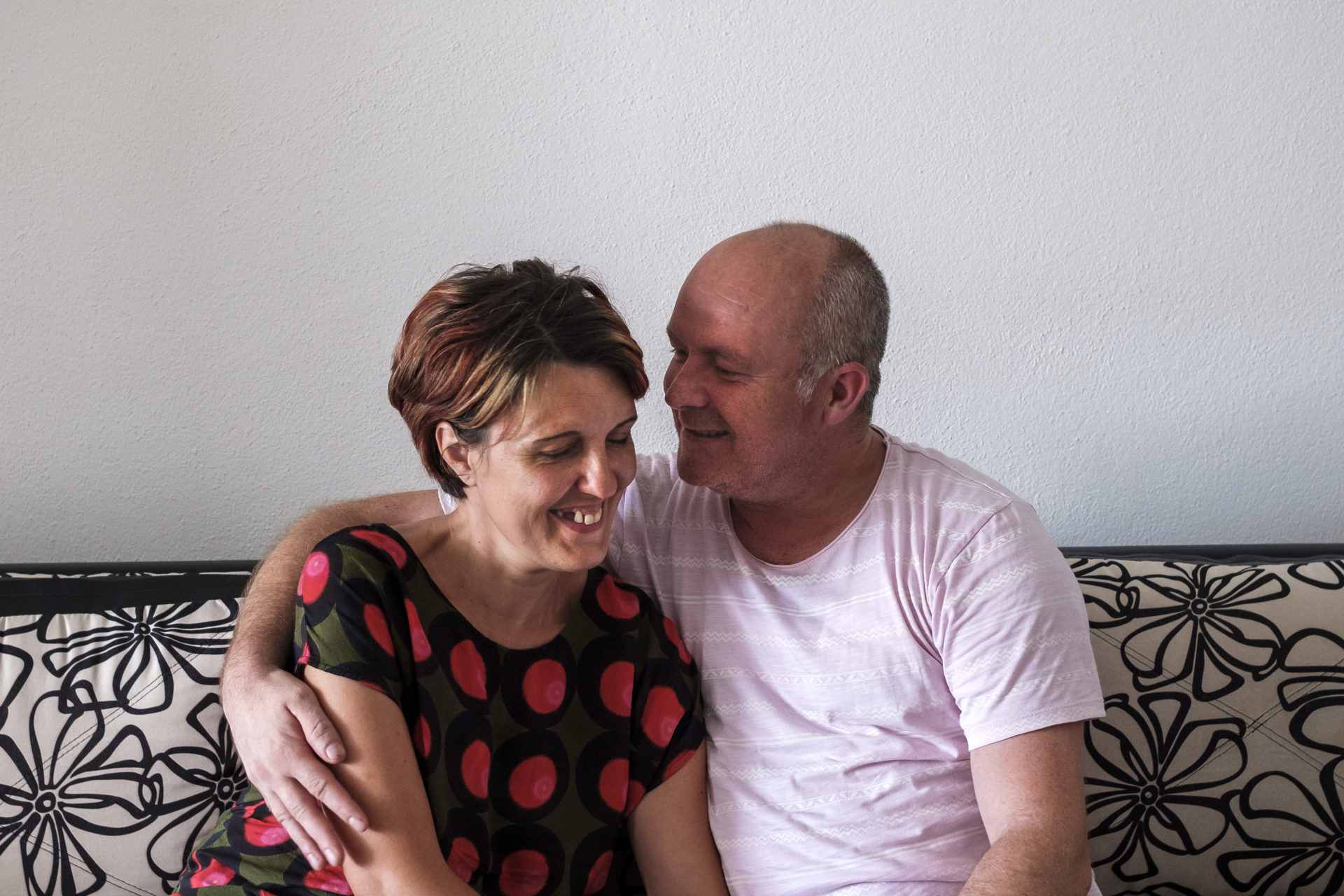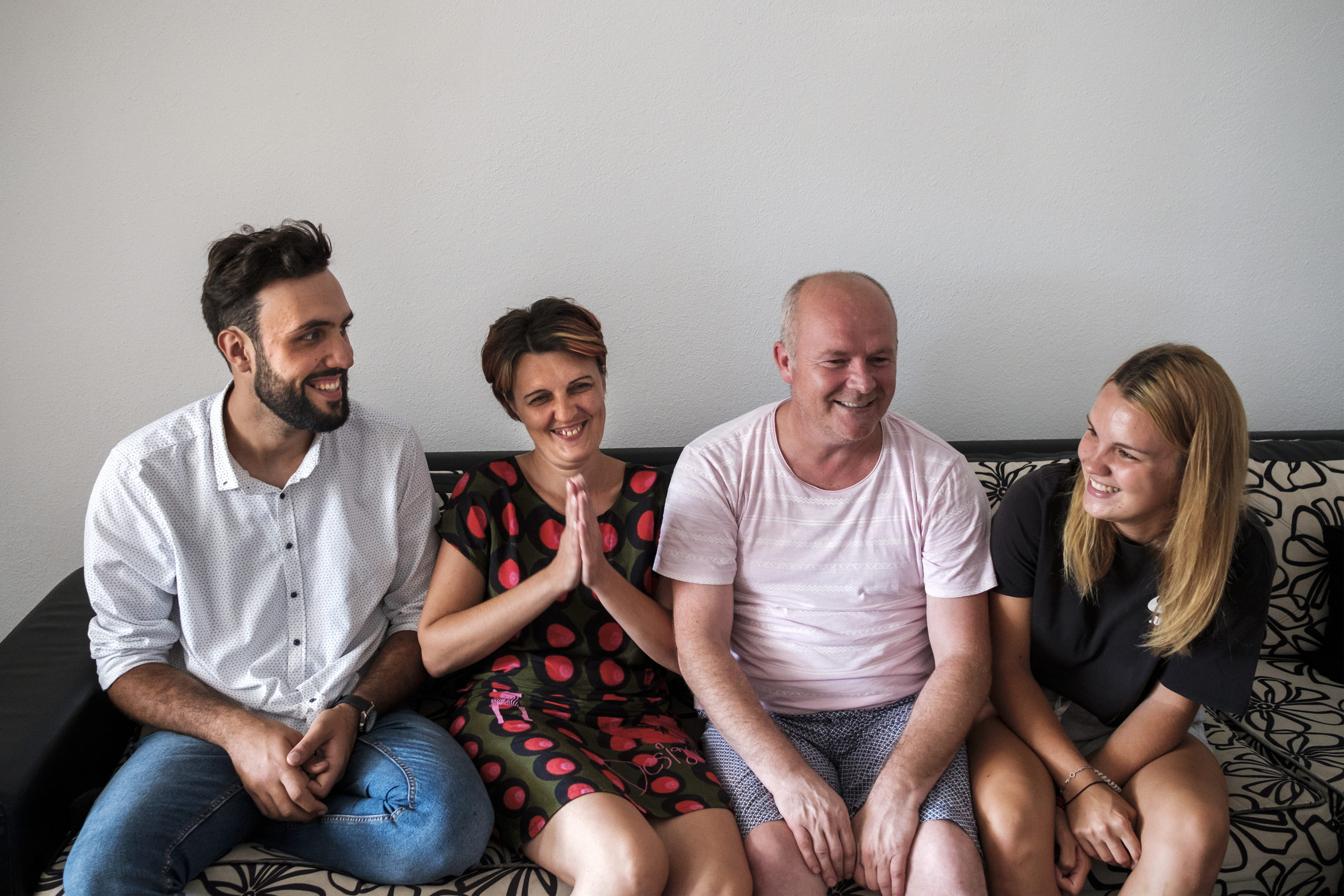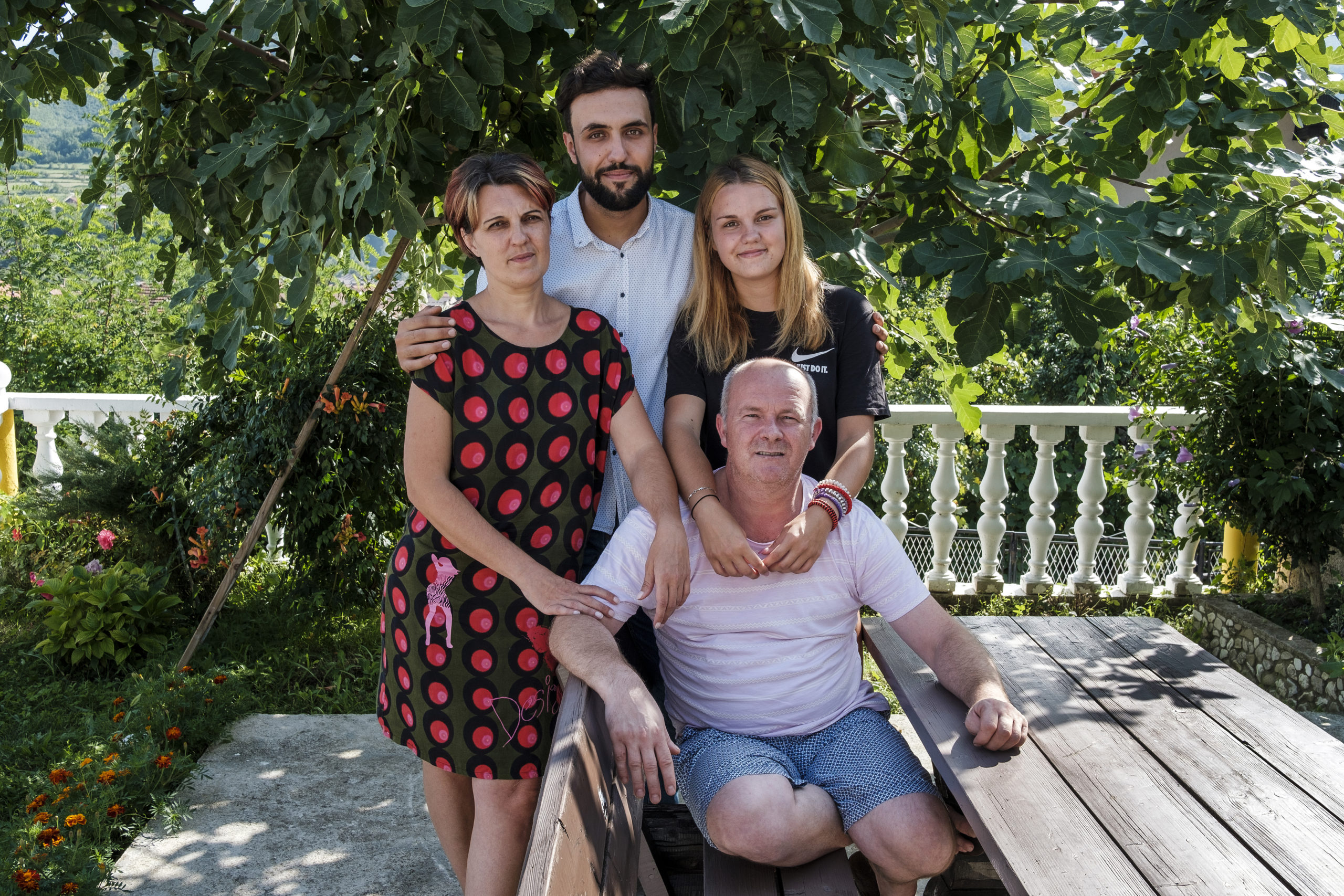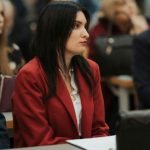
Nataša and Elvir Čelebić, born in 1976 and 1978 respectively, embarked on their love story 20 years ago. Today, it is crowned with two children, Boris (born in 1997) and Ena (born in 2003), demonstrating that love knows know boundaries.
Their parents initially withheld their support for the couple on account of their religious differences as well as a child from Nataša’s previous relationship. Nevertheless, they built their lives together by following their hearts and fighting for what they believed in.
At the time they met, Nataša worked in the children’s ward of the Zenica Cantonal Hospital, where she still works today. She used to go for coffee at the cafe where Elvir worked as a waiter. Dscribing the early days of their courtship, Elvir recalled, “I told her ‘I’m going to marry you one day,’ and she said, ‘Boy, you’re crazy!’ She even reported me to my boss, ‘Excuse me, this waiter is bothering me.’ Then my boss asked what I was doing, and I told him, ‘So what, I like her. She’s a beautiful girl.’ He said, ‘Well, she comes here with a guy.’”
Shortly after, Nataša reached out to Elvir from an unknown number, and that’s how they started communicating on a deeper level. Nataša said that the ‘guy’ mentioned by Elvir’s boss was her three-year-old son, Boris.
“I was taking a German class and he always offered to look after Boris. He bought him those Burago cars, made him balloon animals, and all kinds of things,” Nataša recalled, noting that what attracted her to Elvir most was his intellect, spontaneity, and kindness towards her son.
Elvir didn’t have any prejudices and wasn’t bothered by the fact that Boris wasn’t his child. As Nataša explains, “the two of them got along the most, and then I came after that.”
After nine months of dating, Elvir and Nataša got married.
“One day she was working the first shift at work, and I came and said to her, ‘Do you want to go home or are you coming with me?’ Her mom got angry with her because of that,” said Elvir.
However, the beginning of their relationship wasn’t easy, and they encountered numerous obstacles. The parents on both sides were against their union because of their different religions, but also because Nataša had Boris from her prior relationship. Despite lacking the support of their parents, they faced life’s challenges together, renting an apartment and living off the incomes of a waiter and a nurse.
“We got everything on our own, without anyone’s help,” said Nataša. She explains that they later got the support of their parents, and now her father-in-law often refers to her as his favorite daughter-in-law, even though he has two others who share his Muslim faith.
She describes her husband as resourceful, witty, sincere, temperamental, and full of love, and he has almost the same epithets for his wife.
Five years ago, Nataša faced a challenging phase in her life, and during that time, Elvir and her children were her greatest support. Elvir recalled, “I wanted to shave my head because she was completely bald. If I could, I would have cut my daughter’s hair too, just to comfort and support her. They even told us that she might not survive.”
However, the Čelebić family also successfully overcame this burden of illness.

Religious Differences are Not an Obstacle
Nataša didn’t mind that her husband practiced a different religion. She explains that she grew up in a house where Tito’s picture hung on the wall, and her mother still keeps it there to this day.
“If he had told me that his name was Muhamed or Obren or Darko or Dario… it wouldn’t mean anything to me,” said Nataša. Smiling, Elvir added, “She might have liked me to be an Obren.” He laughed and emphasized that this is just a joke.
Nataša answers, “If I wanted an Obren, I would have gone to Belgrade. So, it really didn’t mean anything to me. At first, we didn’t even know each other’s names, but that’s how we became attracted to each other. It was love, love at first sight. A kind of mutual attraction.”
Nevertheless, they did receive some negative comments about their relationship from friends.
“I have a lot of friends who marry within their faith, but their marriages don’t work out. They separate and all kinds of things. I would wish everyone a marriage like mine. I’ve never thought about divorcing my wife,” said Elvir.
Their relationship is often referred to as a “mixed marriage,” but this doesn’t offend them at all because the people whose opinions they care about are on their side. “I think marriages that have obstacles are more successful. We have friends from mixed marriages who live wonderfully for years and with whom we hang out. They don’t mind it, let them call it mixed marriages. At the end of the day, everyone is mixed in some way,” said Nataša.
Elvir explains that maybe they look at it differently because they grew up in the city, and they have generally explained their “differences” to their children.
“Our marriage was guided by a lucky star, without any prejudices, and that’s how the two of them grew up. Neither child went to religious classes. There were no problems there either. There was an Islamic religious class at school, but the children didn’t attend. I think that religion is something that should be learned in religious institutions,” Elvir noted.
The Biggest Holidays are the Kid’s Birthdays
As they described, their children are not religiously affiliated, and so the most important holidays are the children’s birthdays. “Those are our basic holidays. We also celebrate Eid, Christmas, Easter, and Ramadan in our house. When my mother-in-law fasts for Ramadan, we make iftar here at our place, and we celebrate Eid. When my mom celebrates Christmas, Ena makes cookies. Every year we had a decorated Christmas tree, so our children are growing up like this too,” described Elvir.
Nataša expressed how challenging it was for her when she found out that her children were left to sit alone while the other kids attended religious classes. Boris opted for German instead of religious studies, and Ena sat with a friend outside the school until the subject “Culture of Communities” was introduced.
Nataša believes that it was more difficult for them as a couple because they started dating after the war in Bosnia and Herzegovina. But despite all the challenges, she attributes the success of their marriage to love, mutual support, and respect. She advises young people to follow their hearts above all else.
“You have to fight for what you believe in. If I didn’t believe that I could make my marriage with my husband last, we probably wouldn’t have lasted either. If I didn’t believe that my Boris, and tomorrow my Ena, would do something good for this country, we would probably move away from here. Packing your bags and leaving is the easiest thing,” said Nataša.







